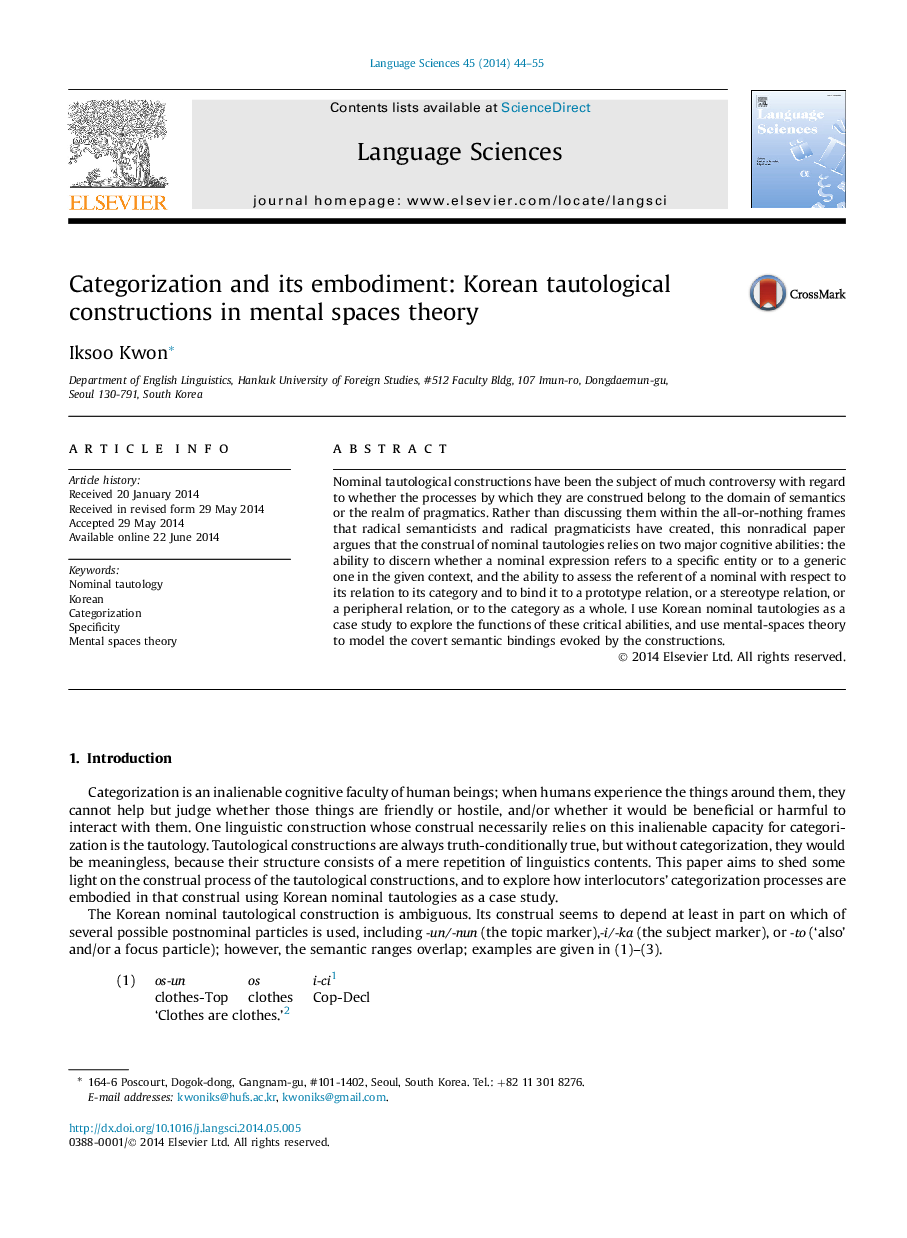| Article ID | Journal | Published Year | Pages | File Type |
|---|---|---|---|---|
| 1103163 | Language Sciences | 2014 | 12 Pages |
Abstract
Nominal tautological constructions have been the subject of much controversy with regard to whether the processes by which they are construed belong to the domain of semantics or the realm of pragmatics. Rather than discussing them within the all-or-nothing frames that radical semanticists and radical pragmaticists have created, this nonradical paper argues that the construal of nominal tautologies relies on two major cognitive abilities: the ability to discern whether a nominal expression refers to a specific entity or to a generic one in the given context, and the ability to assess the referent of a nominal with respect to its relation to its category and to bind it to a prototype relation, or a stereotype relation, or a peripheral relation, or to the category as a whole. I use Korean nominal tautologies as a case study to explore the functions of these critical abilities, and use mental-spaces theory to model the covert semantic bindings evoked by the constructions.
Keywords
Related Topics
Social Sciences and Humanities
Arts and Humanities
Language and Linguistics
Authors
Iksoo Kwon,
